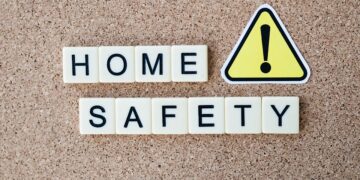Stay Safe and Healthy on Your Next Adventure: Essential Tips for Travel Health and Safety
Traveling is one of life’s greatest pleasures, but it can also come with risks to your health and safety. Whether you’re embarking on a weekend getaway or a long-term trip, it’s important to prioritize your well-being. In this article, we’ll provide you with essential tips for staying safe and healthy on your next adventure.
Before You Go: Pre-Trip Planning
Before you embark on your journey, it’s crucial to take some time to prepare and plan for potential health and safety risks. Here are some pre-trip planning tips to keep in mind:
Research Your Destination
Before you travel, research your destination to familiarize yourself with any health risks, such as infectious diseases, natural disasters, or political unrest. Check the Centers for Disease Control and Prevention (CDC) website for up-to-date information on travel health advisories.
Pack a Travel Health Kit
Be sure to pack a travel health kit with essential items such as first aid supplies, medications, insect repellent, sunscreen, and hand sanitizer. It’s also a good idea to carry copies of your prescription medications in case you need to refill them while traveling.
During Your Trip: Staying Healthy on the Road
Once you’re on your adventure, there are several steps you can take to stay healthy and safe:
Stay Hydrated
Staying hydrated is essential for your health, especially when traveling to hot or humid climates. Carry a reusable water bottle and drink plenty of water throughout the day to prevent dehydration.
Eat Safely
Be cautious about what you eat and drink while traveling. Avoid street food and tap water in countries with poor sanitation, as they can increase your risk of foodborne illnesses. Stick to bottled water and freshly cooked meals from reputable establishments.
Protect Yourself from Insects
Insect bites can transmit diseases such as malaria, dengue fever, and Zika virus. Protect yourself by wearing long-sleeved clothing, using insect repellent, and sleeping under a mosquito net in high-risk areas.
Emergency Preparedness: What to Do in Case of an Emergency
Despite your best efforts to stay safe and healthy, emergencies can still happen while traveling. Here are some tips on what to do in case of an emergency:
Know How to Contact Emergency Services
Before you travel, research the emergency contact numbers for the country you’re visiting. Keep a list of these numbers in your phone and in your travel health kit in case of an emergency.
Purchase Travel Insurance
Travel insurance can provide financial protection in case of unexpected emergencies such as medical evacuations, trip cancellations, or lost luggage. Make sure to purchase a comprehensive travel insurance policy before you go.
Stay Calm and Seek Help
If you find yourself in a medical emergency or dangerous situation, stay calm and seek help immediately. Contact local authorities, your travel insurance provider, or the nearest embassy for assistance.
Returning Home: Post-Trip Health and Safety
Once you’ve returned from your adventure, there are still some important steps to take to ensure your health and safety:
Monitor Your Health
Keep an eye on your health in the weeks following your trip, especially if you’ve visited a high-risk destination. Look out for symptoms of infectious diseases such as fever, diarrhea, or rash, and seek medical attention if needed.
Check Your Travel Insurance Coverage
Review your travel insurance policy to ensure that you have coverage for any post-trip medical expenses or follow-up care. Contact your insurance provider if you have any questions or concerns about your coverage.
Reflect on Your Experience
Take some time to reflect on your travel experience and consider any lessons learned for future trips. Think about what went well and what could be improved in terms of health and safety practices.
Conclusion
Traveling can be a rewarding and enriching experience, but it’s important to prioritize your health and safety along the way. By following the essential tips outlined in this article, you can stay safe and healthy on your next adventure. Remember to plan ahead, stay vigilant, and be prepared for any unexpected emergencies that may arise. Bon voyage!









